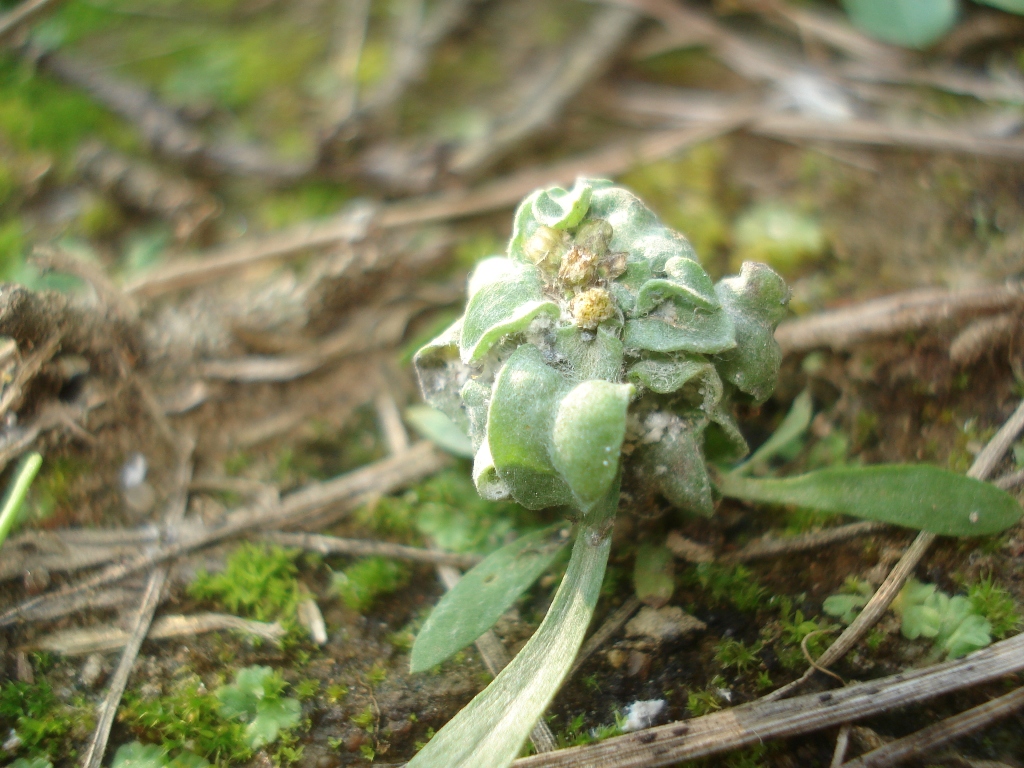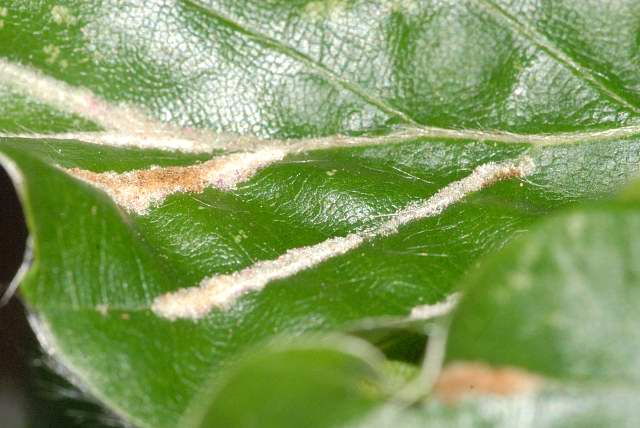Aceria on:
[Wikipedia]
[Google]
[Amazon]
''Aceria'' is a 


A new ''Aceria'' species (Acari: Eriophyoidea) on ''Echinops ritro'' L. subsp. ''ruthenicus'' (M.Bieb.) Nyman (Asteraceae) from Serbia and a supplement to the original description of ''Aceria brevicincta'' (Nalepa 1898).
''Zootaxa'' 2796, 56–66. * '' Aceria bipedis'' * '' Aceria calaceris'' – western maple erineum mite * '' Aceria calystegiae'' * ''
genus
Genus ( plural genera ) is a taxonomic rank used in the biological classification of living and fossil organisms as well as viruses. In the hierarchy of biological classification, genus comes above species and below family. In binomial nom ...
of mite
Mites are small arachnids (eight-legged arthropods). Mites span two large orders of arachnids, the Acariformes and the Parasitiformes, which were historically grouped together in the subclass Acari, but genetic analysis does not show clear e ...
s belonging to the family Eriophyidae
Eriophyidae is a family of more than 200 genera of mites, which live as plant parasites, commonly causing galls or other damage to the plant tissues and hence known as gall mites. About 3,600 species have been described, but this is probably l ...
, the gall mites. These tiny animals are parasites
Parasitism is a close relationship between species, where one organism, the parasite, lives on or inside another organism, the host, causing it some harm, and is adapted structurally to this way of life. The entomologist E. O. Wilson ha ...
of plant
Plants are predominantly photosynthetic eukaryotes of the kingdom Plantae. Historically, the plant kingdom encompassed all living things that were not animals, and included algae and fungi; however, all current definitions of Plantae excl ...
s. Several species can cause blistering and gall
Galls (from the Latin , 'oak-apple') or ''cecidia'' (from the Greek , anything gushing out) are a kind of swelling growth on the external tissues of plants, fungi, or animals. Plant galls are abnormal outgrowths of plant tissues, similar to be ...
s, including erineum galls. A few are economically significant pests
PESTS was an anonymous American activist group formed in 1986 to critique racism, tokenism, and exclusion in the art world. PESTS produced newsletters, posters, and other print material highlighting examples of discrimination in gallery represent ...
, while others are useful as agents of biological pest control
Biological control or biocontrol is a method of controlling pests, such as insects, mites, weeds, and plant diseases, using other organisms. It relies on predation, parasitism, herbivory, or other natural mechanisms, but typically also i ...
of invasive plant
An invasive species otherwise known as an alien is an introduced organism that becomes overpopulated and harms its new environment. Although most introduced species are neutral or beneficial with respect to other species, invasive species adv ...
s such as rush skeletonweed (''Chondrilla juncea''), creeping thistle
''Cirsium arvense'' is a perennial species of flowering plant in the family Asteraceae, native throughout Europe and western Asia, northern Africa and widely introduced elsewhere.Joint Nature Conservation Committee''Cirsium arvense'' The stan ...
(''Cirsium arvense''), and field bindweed (''Convolvulus arvensis'').
There are over 900 species in the genus.)


Selected species
* '' Aceria aloinis'' – aloe mite * '' Aceria anthocoptes'' – rust mite, russet mite * '' Aceria banatica'' Vidovic, B. (2011)A new ''Aceria'' species (Acari: Eriophyoidea) on ''Echinops ritro'' L. subsp. ''ruthenicus'' (M.Bieb.) Nyman (Asteraceae) from Serbia and a supplement to the original description of ''Aceria brevicincta'' (Nalepa 1898).
''Zootaxa'' 2796, 56–66. * '' Aceria bipedis'' * '' Aceria calaceris'' – western maple erineum mite * '' Aceria calystegiae'' * ''
Aceria campestricola
''Aceria campestricola'', is a species of mite in the family Eriophyidae. The mite causes galls on the leaves of elms (''Ulmus'' species) and was described by Georg Ritter von Frauenfeld in 1865.
Description
The mites pass the winter hidden in ...
''
* '' Aceria capreae''
* '' Aceria carmichaeliae''
* ''Aceria chondrillae
''Aceria chondrillae'' (chondrilla gall mite, skeletonweed gall mite) is a gall forming deuterogynous, eriophyid (mite) often used as a biological control of the noxious weed, ''Chondrilla juncea'' (Rush skeletonweed), a highly competitive herba ...
'' – skeletonweed gall mite, chondrilla gall mite
* '' Aceria clianthi''
* '' Aceria depressae''
* '' Aceria diospyri''
* '' Aceria elongata'' – crimson erineum mite
* '' Aceria erinea''
* '' Aceria eriobotryae''
* '' Aceria ficus''
* '' Aceria fraxini'' – ash bead gall mite
* '' Aceria fraxinicola''
* '' Aceria fraxinivora''
* '' Aceria gallae''
* ''Aceria genistae
''Aceria'' is a genus of mites belonging to the family Eriophyidae, the gall mites. These tiny animals are parasites of plants. Several species can cause blistering and galls, including erineum galls. A few are economically significant pests, wh ...
''
* '' Aceria gersoni''
* '' Aceria gleicheniae''
* ''Aceria guerreronis
''Aceria guerreronis'', the coconut mite, is an eriophyid mite which infests coconut plantations. It is economically devastating, and can destroy up to 60% of coconut production. The immature nuts are infested and injured by mites feeding in th ...
''
* '' Aceria hagleyensis''
* '' Aceria healyi''
* '' Aceria iteina''
* '' Aceria jasmini''
* '' Aceria jasminoidis''
* '' Aceria korelli''
* '' Aceria kuko''
* '' Aceria labiatiflorae'' (syn. ''A. oregani'')
* '' Aceria lanyuensis''
* '' Aceria litchii''
* '' Aceria litseae''
* '' Aceria lycopersici''
* ''Aceria malherbae
''Aceria malherbae'' is a species of gall mite known as the bindweed gall mite. It is used as an agent of biological pest control on invasive species of bindweed, particularly field bindweed (''Convolvulus arvensis'').
This mite is native to c ...
'' – bindweed gall mite
* '' Aceria mangiferae''
* '' Aceria manukae''
* '' Aceria mayae''
* '' Aceria melicopis''
* '' Aceria melicyti''
* '' Aceria microphyllae''
* '' Aceria mikaniae''
* '' Aceria monoica''
* '' Aceria nervisequa''
* '' Aceria parvensis''
* '' Aceria pimeliae''
* '' Aceria pipturi''
* '' Aceria plagianthi''
* '' Aceria pobuzii''
* ''Aceria pseudoplatani
''Aceria pseudoplatani'' causes the sycamore felt gall that is found on the leaves of sycamores (''Acer pseudoplatanus
''Acer pseudoplatanus'', known as the sycamore in the British Isles and as the sycamore maple in the United States, is a ...
''
* '' Aceria roxburghianae''
* '' Aceria rubifaciens''
* '' Aceria sacchari''
* '' Aceria serratifoliae''
* '' Aceria sheldoni'' – citrus bud mite
* '' Aceria shepherdiae''
* '' Aceria simonensis''
* '' Aceria spicati''
* '' Aceria strictae''
* '' Aceria sylvestrae''
* '' Aceria taiwanensis''
* '' Aceria tenuifolii''
* '' Aceria titirangiensis''
* '' Aceria tosichella''
* '' Aceria tulipae''
* '' Aceria victoriae''
* '' Aceria waltheri''
* '' Aceria virosae''
* '' Aceria yushania''
* '' Aceria zoysima''
References
External links
* * Eriophyidae Animals described in 1944 Taxa named by Hartford H Keifer Trombidiformes genera {{Trombidiformes-stub